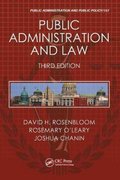Question
n help help Consider a 2-person economy in the form of Bergstrom, Blume, and Varian with one private good x and one public good G.
n help help
Consider a 2-person economy in the form of Bergstrom, Blume, and Varian with one private good x and one public good G. Each consumer is endowed with a quantity wi of the private good, of which xi is consumed and gi is contributed to the linear provision of the public good. Thus, wi = xi + gi and G = g1 + g2. Utility functions are Cobb-Douglas, given by U1(x1, G) = ln x1 + ln G and U2(x2, G) = ln x2 + 2 ln G. (a) Suppose the initial endowments are w1 = 10 and w2 = 5. Solve for the optimum given by Samuelson's condition. (b) Solve each consumer's problem to obtain the best-response functions gi(gi) that lead to the voluntary-contribution equilibrium, where g1 = g2 and g2 = g1. In BBV's notation the best-response functions are of the form gi = max fi(wi + gi) gi , 0 , where fi(wi , gi) is the demand for G that arises from the solution to maxxi,G Ui(xi , G) subject to xi + G = wi + gi . (c) Suppose that initially w = (10, 5) as in part (a). Solve for the g i , G , and the x i . Find the range of w2 such that w1 + w2 = 15 and G remains at the level you found for w. (d) Now suppose that both endowments increase proportionately, so that w 0 i = twi for t > 1. Show that the new equilibrium level of the public good, G0 , is such that G0 > G .
1.1 Exercise 1.2 X is a random variable chosen from X1 with probability a and from X2 with probability b. Calculate E[X] and X for = 0.2 and b = 0.8. X1 is an exponentially distributed r.v. with parameter 1 = 0.1 and X2 is an exponentially distributed r.v. with parameter 2 = 0.02. Let the r.v. Y be chosen from D1 with probability and from D2 with probability b, where D1 and D2 are deterministic r.v.s. Calculate the values D1 and D2 so that E[X] = E[Y ] and X = Y .
1. (30 pts) In a shipment of 50 items, 10 are defective. Suppose 8 items are selected from this shipment at random without replacement, and let X be the number of defective items in the sample. (a) (5 pts) Find the probability mass function for X. (b) (10 pts) Find the probability that at least 2 items in the sample are defective. (c) (10 pts) Find the expected value of X. (d) (5 pts) What type of distribution does X have?
Walgreens Boots Alliance sold Omani Rial 3,22,500 value spot to your customer at `167.43 per OMR & covered yourself in Uk stock exchange on the same day, when the exchange rates were GBP 1 = OMR 0.4901 0.4941 Local inter bank market rates for GBP were Spot GBP 1 = ` 80.71 80.86 Calculate cover rate and ascertain the profit or loss in the transaction. Ignore brokerage.
Consider the same scenario as the example in class. However while the price of capital (r) remains at $10 per unit, the price of labor increases from $20 to $30. Here are the original Production Function and Isocost Curve equations: Q(K,L) = L0.4K0.6 = 100 Isocost: C = 20L + 10K a. What is the new Isocost Curve Equation with the price change? b. Calculate the new cost-minimizing combination of L and K to produce 100 units of output. c. What is the cost associated with this bundle? d. Based on the graph in slide 52 & 54, roughly graph the new isocost line and indicate the new cost-minimizing bundle. What happened?
What do the terms "arbitrage" and "the law of a prize" mean? Discuss and explain how the concepts are connected based on Put-Call Parity. Also explain how the formula itself is connected, ie why you can put equals between the two quantities on each side of the equals sign.
Step by Step Solution
There are 3 Steps involved in it
Step: 1

Get Instant Access to Expert-Tailored Solutions
See step-by-step solutions with expert insights and AI powered tools for academic success
Step: 2

Step: 3

Ace Your Homework with AI
Get the answers you need in no time with our AI-driven, step-by-step assistance
Get Started


